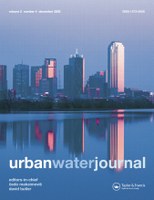- Home
- THE PROJECT Apri sottomenù
- RESEARCH Apri sottomenù
- TRAINING Apri sottomenù
- People Apri sottomenù
- Participants
- SUPPORTERS
-
Dissemination
Apri sottomenù
- SAFERUP! SHOWCASE EVENT at PEARL (UCL) - In person and online event
- SafeSmartInfra Cluster
- A new book shows young scientists how to visualize their research
- Horizon Results Booster Exploitation Strategy Seminar by META Group
- Awarding of the third SAFERUP! Annual Prize
- Urban Paving is Going Places! at the AAAS2020 Annual meeting
- Visit of Jean-Eric PAQUET, the Director-General of Research and Innovation Department of the European Commission
- ProtectVU project hits the news!



